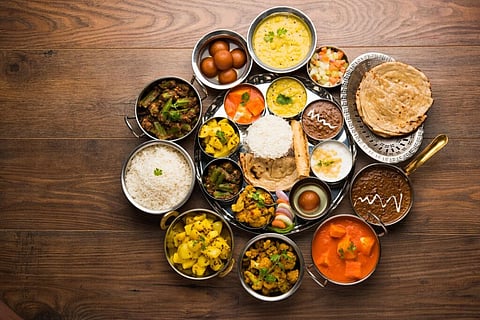
- Home
- Live Blog
- Breaking News
- Top Headlines
- Cities
- NE News
- Sentinel Media
- Sports
- Education
- Jobs

India’s dinner plates may be comforting, but they’re turning into a silent health hazard. A new nationwide study by the Indian Council of Medical Research–India Diabetes (ICMR–INDIAB) has revealed that the average Indian diet, overloaded with carbohydrates and deficient in protein, is driving the country’s alarming rise in obesity and diabetes cases.
The extensive research surveyed over 1.2 lakh adults across 36 states and union territories, mapping how regional food patterns contribute to metabolic risks. The results paint a worrying picture: 62% of daily calories consumed by Indians come from carbohydrates, among the highest in the world. Most of these carbohydrates come from low-quality sources such as white rice, refined wheat, and added sugars. The study found clear regional patterns- white rice is dominant in the South, East, and Northeast, while wheat is the primary staple in North and Central India. Nutrient-rich millets, once a traditional part of Indian diets, are now mainstays in only three states- Karnataka, Gujarat, and Maharashtra.
Excessive sugar intake adds to the problem. Twenty-one states and union territories consume sugar above the World Health Organization’s (WHO) recommended limit of 5% of total calories. This, coupled with refined carbs, is directly linked to the rising incidence of diabetes, prediabetes, and obesity across age groups.
The report also revealed a significant protein gap in Indian diets- only 12% of daily calories come from protein, compared to the recommended 15–20%. Most of this comes from plant-based sources like pulses, lentils, and cereals, while dairy contributes just 2% and animal protein only 1% of daily energy. Interestingly, the Northeast region recorded the highest protein intake (13.6%), largely due to its inclusion of fish and meat in daily meals. Yet, protein deficiency remains widespread nationwide, contributing to muscle loss, poor metabolism, and insulin resistance.
Rethinking the Indian plate
Experts suggest that achieving a healthier diet doesn’t require drastic measures, just smarter choices:
Cut down on refined carbs like white rice and maida. Diversify grains, include unpolished millets and brown rice.
Add a daily mix of pulses, lentils, paneer, and curd. Replace ghee and butter with healthier oils such as mustard or groundnut oil. Limit added sugar to less than 5% of daily calorie intake. (Agencies)
Also Read: ‘Why should anyone be shocked?’: Prateik Smita Patil on taking on his late mother’s surname
Also Watch: